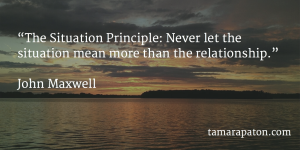

Like anyone, I’m often asked for favours. The asks are small and benign, ranging from reviewing a resume to helping a friend prepare for a board interview. And each and every week, someone asks to “pick my brain” about how they too can join a board.
Every photographer, hair stylist, editor, and web developer knows this experience. At parties, physicians are asked to look at awkwardly located rashes. As we build careers, we are just as likely to receive invitations and requests that we may or may not want to honour.
Perhaps you’ve been asked to serve on a small non-profit board. Or you’ve received an invitation to advise a professional association’s board in exchange for “great exposure.” And you agree to have coffee with anyone who asks, in hopes that supporting others’ careers will boost your own karma.
I’ve written at length about how board careers are built on volunteerism, pro bono consulting projects, and generous networking. For fans of Adam Grant, I consider myself a “giver” and have no intention of changing my stripes.
Although I could build a full-time job out of what I call OPPs — Other People’s Projects — it would be a job that doesn’t pay a dime. It feels great to help others, but I have spent years navigating the awkward dance between being helpful and protecting my own priorities. Unfortunately, my credit card company doesn’t accept my brand equity and goodwill as payment.
So how do we balance the desire to be generous with the reality of taking care of business?
Say yes to five-minute favours
Let’s start with the easy decisions. If you can help someone in five minutes, always say yes. Make an introduction or answer a question in your area of expertise. Doing so will only cut into your time on social media anyway, making it a win for everyone.
Streamline the experience
If you are going to help others, you might as well make it easy and efficient. When someone asks to pick my brain, I suggest that they first read a handful of my related blog posts. If they still have unanswered questions, they can book a 20-minute call via an automated scheduler like Acuity. After all, a favour drags on if we compare calendars over a half dozen emails before speaking.
Limit your time on OPPs
If a request needs more than five minutes, it’s an OPP. I mark two hours in my calendar each week for this sort of thing. As I give time away, the available OPP balance for the week ratchets down. Once my OPP time reaches zero, requests get bumped out to a week that has OPP time available.
In addition, I do four pro bono consulting projects for non-profit boards each year. Holding to this limit ensures that I help organizations that inspire me — and only those that truly inspire me.
Align your giving with your long-term interests
Not all acts of generosity are equal. Serving on the board of your child’s school probably won’t advance your career in the way that serving on a hospital board might. When considering a request, particularly those that represent a significant or long-term commitment, consider the potential upside. What can you learn? Who will you meet? What positive brand equity might you enjoy by association with the organization?
If you are keen to land a place on a corporate board, take note of the current directors and the non-profit boards on which they serve. Then, take aim for a board seat with those non-profits or look for other ways, such as pro bono consulting, that put you in front of the board.
Say no in a way that preserves the relationship
When a favour expands to something others pay you to do, it’s not unreasonable to decline. Doing so gracefully, however, can be tricky. Author and entrepreneur Jon Acuff suggests asking, “What’s your budget?” Doing so introduces the idea of money without being overt about your fees. It reminds others that you are a professional making a living, not a hobbyist. And it gives your friend the chance to bow out with “I’m not sure just yet. Let me check and get back to you.”
After using Acuff’s strategy for a while, I gradually became more comfortable being direct. I usually say something to the effect of “In order for me to honour the commitments I have to my clients, I can’t take on additional pro bono work right now. Thank you for thinking of me.”
There is something powerful found in knowing our worth. Sharing it intentionally helps us enjoy generosity now and long into the future. Our careers and communities thrive when we find ways to do good while also doing well.
Thank you for reading! If you found this post useful, please click the “like” button on LinkedIn and/or share it with others in your network. Doing so helps my work reach others and would mean so much to me.








